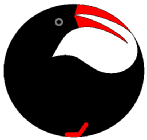Introduction
All writing should speak for itself I suppose but these thoughts about poems come from my love of traditional nature writing. Wordsworth described poetry as the spontaneous overflow of powerful feelings: it takes its origin from emotion recollected in tranquillity, and who would argue with him?
I have no formal education in poetry (nor in much else) and find all the strictures and structures mind-boggling and too scientific (quite enough of that in other fields) and fear that if I worried too much it would kill the love. Instead, I'm inspired by John Donne (we share a birthday, though in a somewhat different century), Robert Frost, John Clare (of course), Edward Thomas, W.H. Davies (Supertramp), R.S. Thomas, William Barnes, H.D. Thoreau, W.B. Yeats, Dylan Thomas and Bob Dylan.
So, as always, mentoring comes from the masters. Isaac Newton mentioned ‘standing on the shoulders of giants’, and the great self-taught Spanish guitarist Segovia said, I was my own teacher and pupil; anything is possible if you have enough enthusiasm and work hard.
Finally, though I have nothing against ‘free verse’ or 'blank verse' per se it has to be bloody good, a la Shakespeare or Wordsworth, or, for me, Ted Walker - the Sussex poet I've only just discovered. There's so much bad prose masquerading as poetry, I struggle to distinguish free verse from cut-about prose. Funky or clever use of blank space, and truncated line breaks do not, of themselves, make good poetry - which I think of as linguistic music. Robert Frost memorably said that free verse was “like playing tennis without a net”.
I hope you can browse and enjoy some of these poems.
Richard



